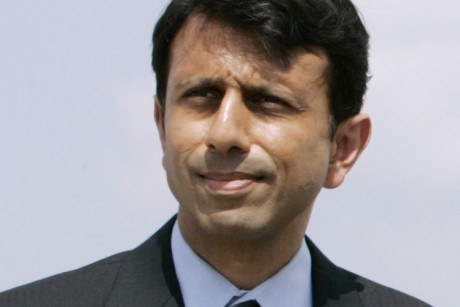Migrant crisis: At least 18 US states refuse to admit Syrian refugees after Paris terror attacks

A total of 18 US states have come out openly to say that they will no longer back the State Department's move to take in 10,000 Syrian refugees in the coming year. They have told the White House that their borders will not be open to these refugees following the terror attacks in Paris on Friday (13 November).
The states are: South Carolina, Oklahoma, Idaho, Maine, Nebraska, Texas, Arkansas, Arizona, Indiana, Louisiana, Mississippi, Massachusetts, Ohio, North Carolina, New Hampshire, Wisconsin, Georgia and Illinois. The reluctance to take in Syrian refugees is not confined to the governors of these states.
"It would be prudent to pause the process of refugees coming to the United States."
Leading Republican presidential candidates have entered the fray, urging President Barack Obama to suspend plans to take in the refugees. Hundreds of thousands of refugees are fleeing war-torn countries in the middle-east and heading towards Europe.
Bobby Jindal, the governor of Louisiana and a Republican presidential candidate has released a letter sent to Obama on 14 November, the day after the Paris terror attacks. In the letter, he asked the president what level of background screening was conducted before the refugees were allowed entry into the US and what degree of monitoring will be put in place after the initial relocation.
"It would be prudent to pause the process of refugees coming to the United States. Authorities need to investigate what happened in Europe before this problem comes to the United States," Jindal said.
My letter to @POTUS: In light of Paris terrorist attacks, time to pause process of refugees coming to the US pic.twitter.com/v2K7wuigX0
— Gov. Bobby Jindal (@BobbyJindal) November 14, 2015Initially, a number of these states supported accepting more Syrian refugees. The situation however changed literally overnight when a Syrian passport was found near the body of one of the attackers in the Paris terror attacks.
The passport holder was later found to be a Syrian refugee who had passed through Greece into Europe in October. This has raised concerns that at least one of the attackers had entered Europe amid the wave of refugees fleeing Syria's four-year civil war.
In May, Libyan government official Abdul Basit Haroun had warned that Isis was smuggling militants into Europe on boats loaded with refugees crossing the Mediterranean. In June, Norway's police confirmed that several Middle Eastern refugees set to be granted asylum in the country under a United Nations scheme were found to have ties to the jihadist groups Isis and Al Nusra Front.
There are now questions as to whether the governors actually have the powers to stop the refugees from being sent to their states. According to legal experts, the Refugee Act of 1980 requires the State Department to maintain "an effective and responsive liaison" with governors and mayors but does not give them any formal role in the resettlement process. They will therefore have little powers to actually stop refugees from entering and settling in their respective states.
If that is the case, then where does the executive order signed by Governor Jindal instructing state agencies to "take all available steps to stop the relocation of Syrian refugees to LA" stand? Jindal tweeted that he had just signed the order.
I just signed an Executive Order instructing state agencies to take all available steps to stop the relocation of Syrian refugees to LA.
— Gov. Bobby Jindal (@BobbyJindal) November 16, 2015And the list goes on. In another open letter to Obama, Texas Governor Greg Abbott said: "Texas cannot participate in any programme that will result in Syrian refugees - any one of whom could be connected to terrorism - being resettled in Texas."
Similarly, Alabama Governor Robert Bentley said that he would not "stand complicit to a policy that places the citizens of Alabama in harm's way. We refuse Syrian refugees."
State Department spokesman Mark Toner however said the government was sticking to its plan, rejecting the fears raised that Syrian refugees allowed to settle in the US would increase the risk of terror attacks in the country. "We think we can do this safely and in a way that reflects American values.
"These refugees are subject to the highest level security checks of any category of traveler to the United States," Toner added. The US has promised to increase the number of refugees it takes in from all nations by 15,000 per year over the next two years, bringing the total to 100,000 a year by 2017.
© Copyright IBTimes 2025. All rights reserved.






















